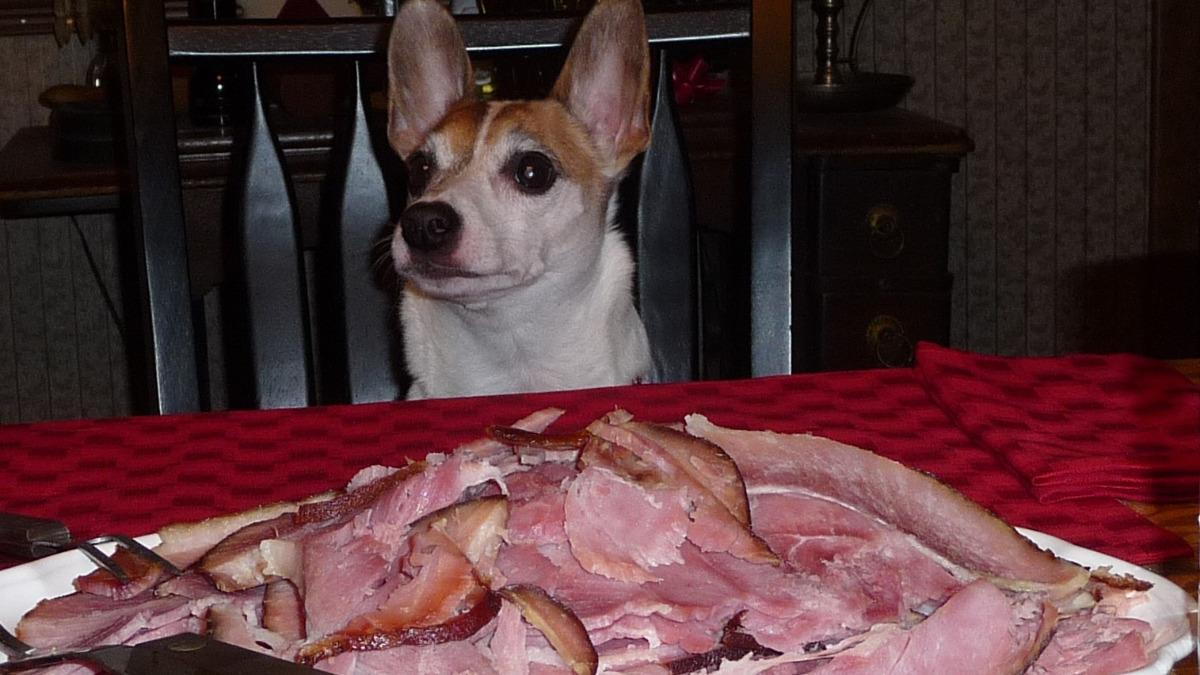Can My Pet Eat That?

- posted: Sep. 12, 2020
Can my Pet Eat That?
Let’s face it, we all love our pets and we like to treat them once in a while—OK, maybe every day! Sharing a bite of pizza with your dog or a lick of ice cream with your kitty seems like a fun thing to do, but is it really alright to feed our pets what we’re eating? And, are there foods that are actually toxic to our furry friends? Read on to find out!
Whether you have a dog, bird, guinea pig or lizard, do your research and make sure you’re feeding your pet appropriately. Obesity is a huge problem (no pun intended) for pets of all types. Feeding appropriate diets and controlling portions and treats is important for keeping pets healthy and helping them live longer. If you aren’t sure, ask our vets! Exotics are a little trickier and diets are species specific. For dogs and cats, our vets generally recommend a good quality commercial brand of kibble and/or canned food—Purina, Hill’s Science Diet, Royal Canin and Iams/Eukanuba meet all the criteria and have research and science behind their diets. Are there other good diets out there? Sure. We are happy to review other pet foods with our clients.
Limit treats and table foods as they not only contribute to obesity but also sometimes cause gastrointestinal issues ranging from mild diarrhea to a more serious issue like pancreatitis. Avoid salt, oil, butter and seasonings as well as foods high in fats, sugars and artificial sweeteners. Pets with food allergies should also stick to a strict diet to avoid flare ups. Home cooked diets can be difficult to prepare and be truly balanced with all of a pet’s nutritional needs and raw diets are not recommended due to the possibility of bacterial contamination with bugs like Salmonella, but individual cases may vary. Don’t make it a habit of feeding your pet half your dinner—by not doing this, you’ll stop begging and keep pets healthier.
There are some foods that should never be fed to pets as they can be toxic. Most of these are well known, but, if you need a refresher, here are some of the more common ones:
Chocolate, Coffee or other heavily caffeinated foods or beverages
Grapes/Raisins
Onions/Garlic
Macadamia Nuts
Avocado—extremely toxic to birds
Alcohol of any kind
Gum or candy containing the artificial sweetener, xylitol
Corn cobs and fruit pits (these items can become lodged in the intestine causing an obstruction and some fruit seeds and pits can be toxic if ingested in large amounts)
Unbaked yeast dough (it can expand in the stomach and create gas and alcohol causing bloat and alcohol poisoning)
What can you feed your pet if you want to offer a treat? Most vegetables are safe in moderation and many dogs love carrots and green beans—fresh, frozen or canned. The flesh of most fruits other than grapes are OK (avoid seeds). Midnight, one of the cats who used to live at Patton loved eating cantaloupe! Lean meats such as chicken or beef and fish such as tuna or salmon are safe but don’t feed skin, bones or fat. Avoid fatty, salty meats like bacon, ham, sausage—the fats and spices can cause GI upset and even pancreatitis (a small bit of lunch meat used to give a pet a pill is OK). Many pets also enjoy yogurt, pumpkin, potatoes, rice and pasta. Peanut butter and cheese are other favorites and many people use them to disguise medications, but limit quantities since they’re high in fat. Again, the goal is to feed just a small taste, not a meal—this article is not license to just feed loads of table food to your pet. And, while foods such as potato chips, pizza crusts, French fries, ice cream, etc. are safe, they’re high in calories. Just as we should eat these things in moderation, so should our pets. These might be OK once in a while as a special treat but save those vanilla ice cream pup cups and fast food hamburgers for super special, once a year indulgences!
By limiting table foods for your pet and knowing which foods are toxic, you can help keep your pet fit and happy and avoid many health issues.
This blog brought to you by the Patton Veterinary Hospital serving Red Lion, York and the surrounding communities.
https://www.aspca.org/pet-care/animal-poison-control/people-foods-avoid-feeding-your-pets
Location
Patton Veterinary Hospital
425 E Broadway
Red Lion, PA 17356
